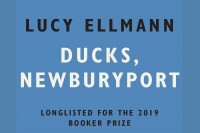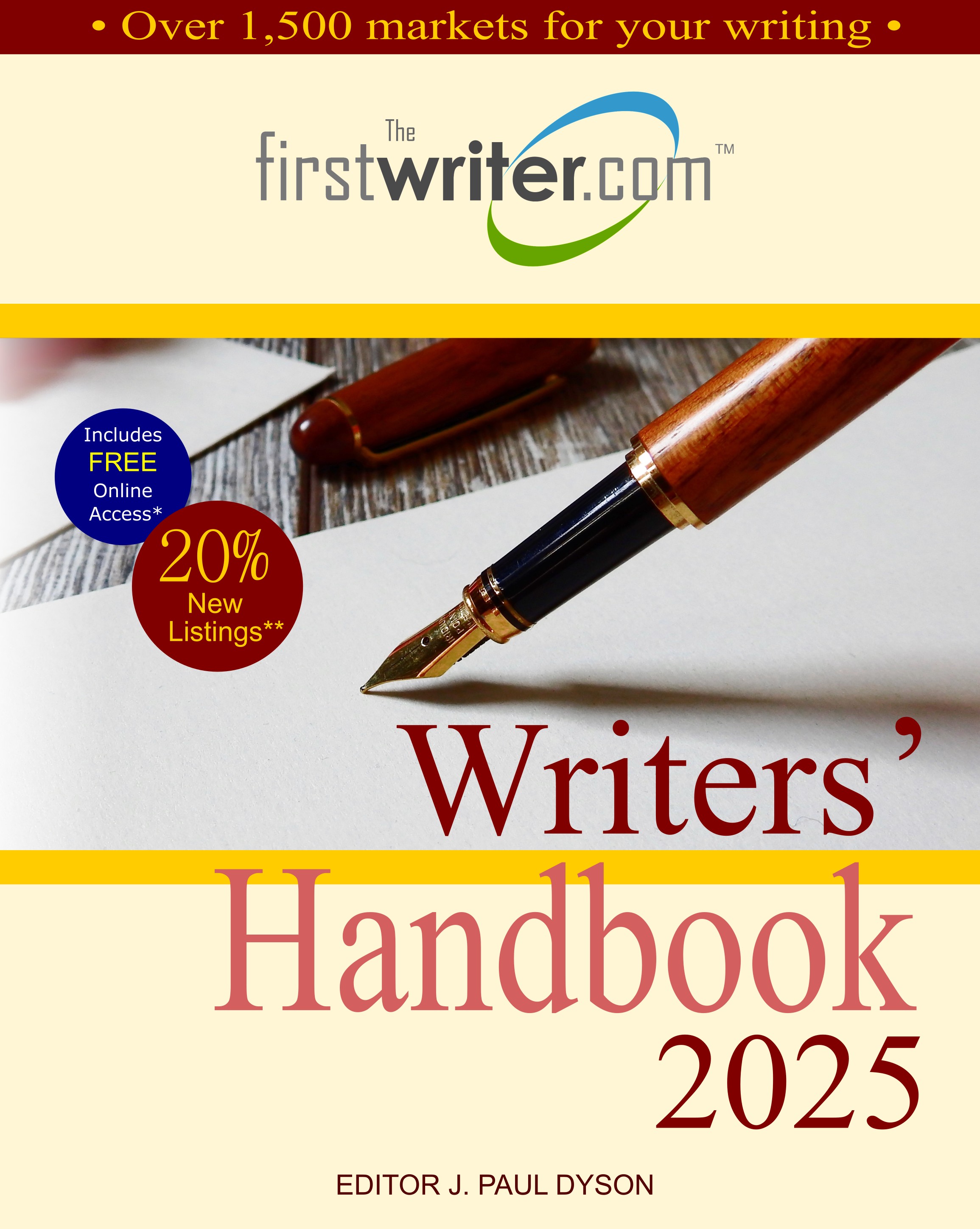
Writers' Newsletter
Issue #201
December 2019
|
Point of View Quickly Brings a Story to Life

By G. Miki Hayden
Instructor at Writer's Digest University online and private writing coach
firstwriter.com – Wednesday December 4, 2019
Intimacy with characters will hook your readers
A close point of view, whether first person or third, will supply the inner meaning to a story. Such an intimate point of view brings to any piece of fiction insight, warmth, understandable human foibles, and an empathetic reader attraction to the character. This “limited” point of view facilitates a direct transmission of emotion. Without such a specific character perspective, all the readers have to enlighten them is outer description—although externals can, of course, go a long way to pointing to feeling and shoring up emotional declarations.
The bottom line in regard to point of view is that today’s techniques of writing fiction have moved well beyond the unfocused omniscient voice of another, less sophisticated time. More than 90 percent of fiction written currently is presented in a limited third person voice. While, in my opinion, first person point of view can work equally well, I feel neither editors nor readers will tolerate the distant and overly formal convention of yesteryear’s omniscient viewpoint.
"Come in and wash up, sweetheart," the father called, holding the door open for his wife, while coaxing Janet out of hiding.
Now suppose the author were to actually write this from the father’s viewpoint.
"Come in and wash up, sweetheart," Daniel called, holding the door open for his wife, while coaxing Janet out of hiding. All Daniel wanted at dinner tonight was a bit of peace. Lil had been edgy lately in a way that mystified him. Perhaps he was himself to blame, as the head of the household—the man, the husband. But then Lil took out her unhappiness on Janet. And Janet could no more help being Janet than, well, okay, than Lil could help being Lil. Being the peacemaker, he was the one who had to make this work.
Point of view is one of the most important elements in fiction and often very poorly understood by new writers. All scenes should have a character point of view and only one point of view—though a chapter or an entire novel can have many different points of view. Changing point of view within a scene is frowned on these days, however, and is called “head hopping.” While you will find examples of that in many an established author’s work, the use of more than one viewpoint within a scene won’t be accepted by agents or editors from a novice writer.
Show Don’t Tell?
What I also see in regard to point of view is a miscomprehension of “show don’t tell.” We do tell when we tell from a particular point of view. If we don’t tell, we have a rather dry expression of character emotion.
"She struggled with the latch and shot Joe an angry look when the box wouldn’t open."
Well, okay, we now know she’s angry, but she may be feeling and thinking a lot of other things, things that can’t be seen from the outside.
"She struggled desperately with the latch. The box had to open. She wanted to take a hammer to it, but if she broke the thing, Hester would know she’d seen what was inside. She could have wept, but instead took her frustration out on Joe, sending him an angry look to say this whole miserable situation was his stupid fault."
Dialogue
What happens generally in the case of a writer trying to avoid “telling,” is that the author will fall back on dialogue. Well, dialogue and plenty of it is a very good thing. But dialogue doesn’t fill the bill alone for at least a couple of reasons. The point of view character isn’t going to tell Joe that she could weep from frustration, and also, we want to vary our delivery of absolutely every type of communication we make to the reader. We can’t just have talk.
We do, indeed, want dialogue, but we also want point of view narration. We want the character to say whatever she will say to Joe and also want her to keep her emotions hidden in the way that would be appropriate to her and suitable within the relationship. The reader, however, is entitled to know the POV character’s innermost thoughts, and thus, we tell. Telling broadens what we can share with the reader.
As an exercise, take a scene from your own writing and see if you’ve used a specific character’s point of view and only one POV in that scene. Do you tell what can’t be said in dialogue? Or do you only share character insights in dialogue and not in narration? Try a rewrite and see how that goes.
All this falls within what we do in establishing and using point of view.
About the Author
G. Miki Hayden is a short story Edgar winner. She teaches a mystery writing and a thriller writing and other writing classes at Writer's Digest online university. The third edition of her Writing the Mystery is available through Amazon and other good bookshops. She is also the author of The Naked Writer, a comprehensive, easy-to-read style and composition guide for all levels of writers.
Miki's most recent novel out is Respiration, the third book in her Rebirth Series. The New York Times gave her Pacific Empire a rave and listed it on that year's Summer Reading List. Miki is a short story Edgar winner for "The Maids," about the poisoning of French slave holders in Haiti.
"Holder, Oklahoma Senior Police Officer Aaron Clement is out for justice above all, even if he irritates the local hierarchy. Hayden in Dry Bones gives us nothing-barred investigation and plenty of nitty-gritty police procedure—which makes for a real page turner." — Marianna Ramondetta, author of The Barber from Palermo
|
|
|
|
|
|
|
|
International Copyright RegistrationRegister your copyright online for instant copyright protection in more than 160 different countries worldwide. |
News |
Some of this month's news for writers from around the web.
HMH to Launch Children's Graphic Novel Imprint

publishersweekly.com – Friday November 22, 2019
Houghton Mifflin Harcourt is the latest publisher to announce a children’s graphic novel imprint: Etch, which will gather all of HMH’s graphic novels into a single imprint, will debut in September 2020. The launch catalog will consist of seven titles, with plans to publish about 15 books per year.
Publisher Catherine Onder will oversee the imprint, but editors from the HMH children’s imprints Clarion, Versify, and HMH Books for Young Readers will all acquire properties for Etch. “I’ve been so impressed by the passion from the team, across both editorial and design, and the talented roster of creators that they’ve brought on board,” Onder said. “This variety of perspectives, interests, and expertise is key to our providing graphic novels for every reader.”
Writers' Handbook 2025 - Out Now!
|
The kindness of strangers has saved our publishers

standard.co.uk – Friday December 20, 2019
One of the reasons my husband Sam Jordison and I set up Galley Beggar Press, our small independent publishing company, in 2012 was that it would allow us to take risks on publishing the books we loved.
I’m happy to say that it worked. We haven’t put out many books in the past seven years, but the ones we have, have had a big effect. They’ve won prestigious literary prizes, been translated into dozens of languages and sold around the world. And they’ve also, luckily for us, sold enough copies here in the UK to help keep our little company going.
This year was an especially fortunate one. Our title Ducks, Newburyport by Lucy Ellmann was shortlisted for The Booker Prize. It’s a big deal — and it meant that Lucy’s masterpiece, which we loved so much, was going to find more readers.
End of an era for book publisher Penguin

news.sky.com – Wednesday December 18, 2019
It is the end of an era for one of the most famous names in book publishing.
Penguin is being sold by Pearson, its owner for the last half-century, as the company focuses its activities exclusively on education.
Pearson today announced that it was selling its remaining stake in Penguin Random House, the book publishing joint venture it formed six years ago with Bertelsmann, the German media group.
The company originally owned 47% of Penguin Random House when the joint venture was set up in 2013.
It sold a 22% stake in the business to Bertelsmann, its joint venture partner, for $1bn in July 2017.
| Click here for the rest of this month's news > |
Listings |
A selection of the new listings added to firstwriter.com this month.
New Magazine Listing
firstwriter.com – Tuesday December 17, 2019
Publishes: Fiction; Nonfiction; Poetry; Scripts;
Areas include: Criticism; Drama; Translations;
Markets: Adult;
Preferred styles: Literary
Submit 3-5 poems, fiction, criticism, or creative nonfiction up to 4,000 words, drama up to 15 pages, or translations, with 60-word bio in the third person. Send as attachment by email. See website for full guidelines.
|
|
|
|
|
|
|
|
New Magazine Listing
firstwriter.com – Wednesday December 11, 2019
Publishes: Essays; Fiction; Nonfiction; Poetry;
Areas include: Short Stories; Translations;
Markets: Adult;
Preferred styles: Literary
Submit short stories and novel excerpts up to 8,000 words, or three flash fiction pieces (1,000 words each), 1-3 poems (up to ten pages total), or creative nonfiction including memoir excerpts, essays, imaginative meditations, up to 8,000 words, via online submission system during the three annual reading periods: January, May, and September.
|
|
|
|
|
|
|
|
New Literary Agent Listing: Ellen Goff

firstwriter.com – Tuesday December 10, 2019
Interested in all genres and formats of YA, especially anything spooky, historical fiction, and graphic novels. She has a soft spot for Shakespeare as well as southern gothic stories that remind her of her home state of Kentucky.
|
|
|
|
|
|
|
|
| Click here for more of this month's new listings > |
Articles |
Some of this month's articles for writers from around the web.
How The Husband And Wife Writing As Cleo Coyle Craft Their Bestselling Coffeehouse Mystery Series Together

forbes.com – Thursday December 19, 2019
Cleo Coyle is the New York Times bestselling author of the coffeehouse mystery series set in Greenwich Village...and she’s also the pseudonym of husband-and-wife author team Alice Alfonsi and Marc Cerasini. The pair, as Coyle, are the authors of, most recently, Brewed Awakening (Berkley), book 18 in the coffeehouse series starring Clare Cosi.
The couple, who also write the haunted bookshop mystery series, have been married for 19 years, and met while living in New York pursuing independent writing careers. Via email, I interviewed them about their writing process, the pros and cons of writing as a team, why they chose a pseudonym, and how they keep their mysteries fresh for readers.
Conversations With Friends (Who Are Also Writers)

nytimes.com – Thursday December 19, 2019
Jenny Zhang was in sweatpants, wrestling one Sunday afternoon with a short story that wasn’t coming together. She typed out an email to seven other writers: “Yo. Can we meet up next week? I have something that I kinda semi-urently” — the g key on her keyboard was broken — “need help on.”
The story, which jumped back and forth between plotlines, was intentionally nontraditional, and she didn’t want to lose that. The peers whose advice she sought, she said, “would let the jagged edges remain” while making the story “better than it was.” When she met with them, they helped her find the thread in the story, which she finished and included in her 2017 book “Sour Heart.”
Writing is often considered a solitary act, but some writers have figured out a way to make the process more collaborative even before editors, agents and other publishing professionals get involved. Zhang’s group, which includes Alice Sola Kim, Karan Mahajan and Tony Tulathimutte, has been meeting about every month since most of them were undergraduate students at Stanford University. Their sessions are highly structured, with deadlines for submitting drafts and detailed manuscript notes, while other groups gather more informally to talk about their careers, commiserate over deadlines or gossip about the publishing industry.
3 books to help you become a better writer in 2020

redlandsdailyfacts.com – Sunday December 15, 2019
The New Year will soon be upon us and as this is seen as a time of rebirth and rejuvenation, many people use the New Year to embark on a journey of self-improvement and self-reflection. Many people take this time to pick up a new hobby, create and maintain better habits, and maybe improve one’s lot in life.
One skill that I personally try to improve upon is writing. Writing is a necessary skill and a refresher course on writing is apt to keep those skills sharp. It’s also helpful so that in the middle of an important writing session, you don’t have to stop and look up whether it’s light bulb or light-bulb (lightbulb), or where to put the apostrophe in the plural of Adams ( … this one maybe look up).
Reading is one of the best ways to improve your writing, and reading a book about improving writing should improve things even more so. Like three fold. (This is about improving writing, not math skills. That’s for next time.)
| Click here for the rest of this month's articles > |
About |
Information about this newsletter and the firstwriter.com site.
Resources for writers
Go to firstwriter.com for the following invaluable resources for writers:
Advertise
To advertise on this newsletter for as little as $30 / £20 click here
Submit
To submit articles, news items, press releases, or any other items of interest to writers, click here
This newsletter has been compiled by firstwriter.com and is protected by copyright. It may not be copied, forwarded, or otherwise distributed in whole or in part without firstwriter.com's written consent.
While every effort is made to ensure that all information contained within this newsletter is accurate, readers are reminded that this information is provided only as a list of potential leads that the reader should follow up with his or her own investigations. Unless otherwise stated, firstwriter.com is not associated with and does not endorse, recommend, or provide any assurances relating to any of the organisations, events, persons or promotions contained within this newsletter, and cannot be held responsible for any loss incurred due to actions taken in relation to information provided. Inclusion does not constitute recommendation.
Please do not reply to this email. The address from which this has been sent is not capable of receiving emails and sending an email to it may cause your subscription to stop. If you have any queries or require any assistance please contact us by going to https://www.firstwriter.com/contact_us.shtml
© firstwriter.com 2019
